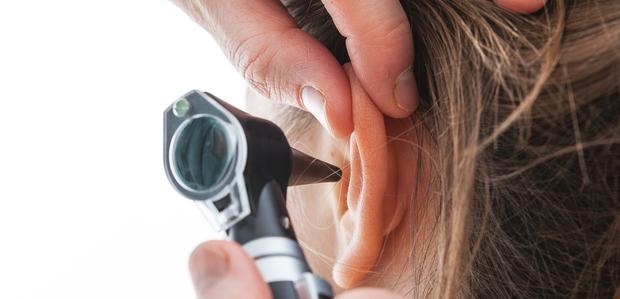Best ENT Hospital in Chennai - Gleneagles HealthCity Chennai

When it comes to seeking the best ENT hospital in Chennai, Gleneagles HealthCity Chennai stands out as a beacon of excellence. Our commitment to providing top-notch medical care, cutting-edge technology, and a patient-centric approach has made us the preferred choice for individuals seeking specialized treatment for ear, nose, and throat conditions in Chennai and beyond.
World-Class Facilities
At Gleneagles HealthCity Chennai, we take pride in our state-of-the-art facilities that are equipped with the latest advancements in medical technology. Our hospital is designed to offer a comfortable and reassuring environment for our patients, ensuring their well-being from the moment they step through our doors.
Advanced Diagnostic Equipment
One of the key factors that set us apart as the best ENT hospital in Chennai is our access to advanced diagnostic equipment. Our experienced medical professionals use cutting-edge tools to accurately diagnose a wide range of ENT conditions. This allows us to create personalized treatment plans that cater to the unique needs of each patient.
A Team of Experts
Our dedicated team of ENT specialists is the backbone of our hospital. We have assembled a group of highly skilled and experienced professionals who are passionate about providing the best possible care to our patients. Their expertise covers a wide spectrum of ENT conditions, ensuring that you receive comprehensive and specialized treatment.
Personalized Care
We understand that every patient is unique, and so are their healthcare needs. Our team takes a personalized approach to treatment, tailoring our services to address the specific concerns of each patient. This ensures that you receive the best care possible, and it's one of the reasons why we are considered the best ENT hospital in Chennai.
Comprehensive ENT Services
As the leading ENT hospital in Chennai, we offer a wide range of services to address various ear, nose, and throat conditions. Some of our specialized services include:
1. Ear Care
Our expert ENT specialists are well-equipped to handle a variety of ear-related issues, from hearing loss and infections to complex surgical procedures such as cochlear implants.
2. Nasal and Sinus Care
Chronic sinusitis and nasal disorders can significantly impact one's quality of life. Our team is adept at diagnosing and treating these conditions to provide relief and improve your overall well-being.
3. Throat Disorders
From voice disorders to swallowing difficulties, our ENT specialists have the expertise to diagnose and treat a range of throat-related issues, ensuring you can communicate and eat comfortably.
Patient-Centric Approach
At Gleneagles HealthCity Chennai, our patients are at the heart of everything we do. We believe in clear communication, compassionate care, and involving our patients in their treatment decisions. Our aim is not only to treat your condition but also to ensure your overall satisfaction and well-being.
Unparalleled Excellence in Care
Our commitment to excellence has earned us the reputation of being the best ENT hospital in Chennai. We take immense pride in the success stories of our patients who have regained their health and quality of life through our dedicated care.
Contact Us
When you are in search of the best ENT hospital in Chennai, look no further than Gleneagles HealthCity Chennai. Our world-class facilities, expert team, and patient-centric approach make us the preferred choice for individuals seeking top-quality ear, nose, and throat care.
Our Doctors
View all
Dr Muraleedharan A
Consultant
MBBS, MS (ENT), DLO, FABMS
- What sets Gleneagles HealthCity Chennai apart from other ENT hospitals in Chennai?
At Gleneagles HealthCity Chennai, we stand out due to our commitment to world-class facilities, a highly skilled team of ENT specialists, advanced diagnostic equipment, and a patient-centric approach. Our dedication to providing personalized care and comprehensive ENT services has earned us the reputation of being the best in the field.
- What types of ear, nose, and throat conditions do you treat?
We offer a wide range of services to address various ENT conditions, including ear-related issues such as hearing loss and infections, nasal and sinus disorders, and throat-related problems such as voice disorders and swallowing difficulties. Our experts are capable of handling a wide spectrum of conditions.
- How can I schedule a consultation at Gleneagles HealthCity Chennai?
Scheduling a consultation is easy. You can contact us via phone or email to book an appointment with one of our experienced ENT specialists. Our friendly staff will assist you in selecting a convenient date and time for your visit.
- Is Gleneagles HealthCity Chennai equipped with advanced diagnostic equipment?
Yes, our hospital is equipped with state-of-the-art diagnostic equipment that enables our specialists to accurately diagnose a variety of ENT conditions. This advanced technology allows us to tailor treatment plans to meet the unique needs of each patient.
- Can Gleneagles HealthCity Chennai help with complex ENT surgeries?
Yes, we have a team of highly skilled ENT surgeons who are experienced in performing complex surgical procedures, including cochlear implants, reconstructive surgery, and more. Our expertise extends to both common and rare ENT surgeries.
FAQ
Why Choose Us?
-
PATIENT EXPERIENCE
Your care and comfort are our top priorities. We ensure that the patients are well informed prior to every step we take for their benefit and that their queries are effectively answered.
-
LATEST TECHNOLOGIES
Your care and comfort are our top priorities. We ensure that the patients are well informed prior to every step we take for their benefit and that their queries are effectively answered
-
PROVIDING QUALITY CARE
Your care and comfort are our top priorities. We ensure that the patients are well informed prior to every step we take for their benefit and that their queries are effectively answered.










